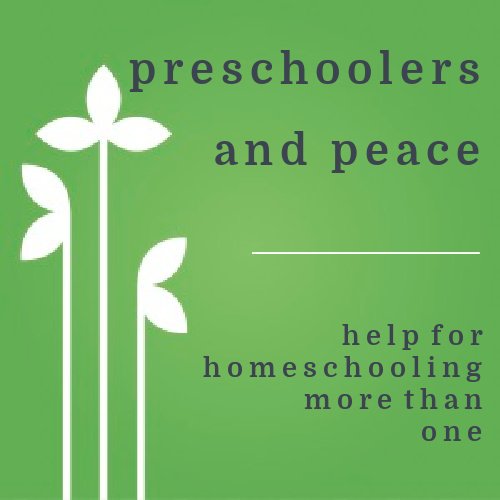Transitioning from Preschool to "Real" School
Jennifer asked last week on Facebook:
"How about something regarding the transition from preschool to grade school? My kids will be 1st & 2nd grade (as well as 1-year-old who will be a preschooler before we know it), and this past year I was a bit bummed with how much less "fun" time they get with mom.
With board and card games, coloring, exploring, reading, and library storytime, preschool stuff was only play. Now I'm feeling like I have to find some magical space to fit it in between baby care, "real" schoolwork, food (why do they have to eat 3x/day? Ha), and the ever present housework. They've become much closer and spend lots of time playing games together, and if they were "out schooling" we certainly wouldn't be playing together much so I know it's a normal transition. Perhaps I've got my question answered in the asking, but surely I'm not the only mom feeling guilty about not spending our days chock full-o fun in the traditional sense (I mean, school "work" is not all blood sweat & tears!)."

Mighty Joe loves preschool apps
Jennifer, I think that some of the answer to your question really has to do with your educational philosophy. Perhaps it's in your make-up to be relaxed, and there will come a time when you and your children will just have to bite the bullet, so to speak. That time isn't necessarily now, though. The best way to go about homeschooling, regardless of your style or theory, is to start slow in the elementary years, progress as they can take on more abstract thought and skill, and finish heavy in the high school years.
I've never been an unschooler, but at the same time I do think that life and experiences are often a far better teacher than a workbook, so we balance the two as best we can. Still, we try to focus on what really matters in the early years and let go of the rest. This is the time to learn to read, but learning to read can be done on your lap or snuggled in next to you on the couch. Counting, adding, measuring can all be done as you go about your day. You do want to introduce some serious work at some point, because the reality is that all of our children will have to function in the real world someday, and the real world measures knowledge based upon tests, scores, grades, and degrees. It stinks, but it's true.
Keep the games, the art, the nature walks, the good videos, the reading, the library, and the 3 meals. Add some practice worksheets and some history lessons (read aloud? listen to some recordings?) during the little one's naptime, and just see how much you can accomplish! I know my younger elementary level students aren't grasping the full scope of our history studies, but they like to listen in and do the coloring sheet, and that's worth it for me.
Workbooks my kids have loved:
We've used a lot of the Evan Moor products and many more of the Kumon workbooks, and we like them all!
